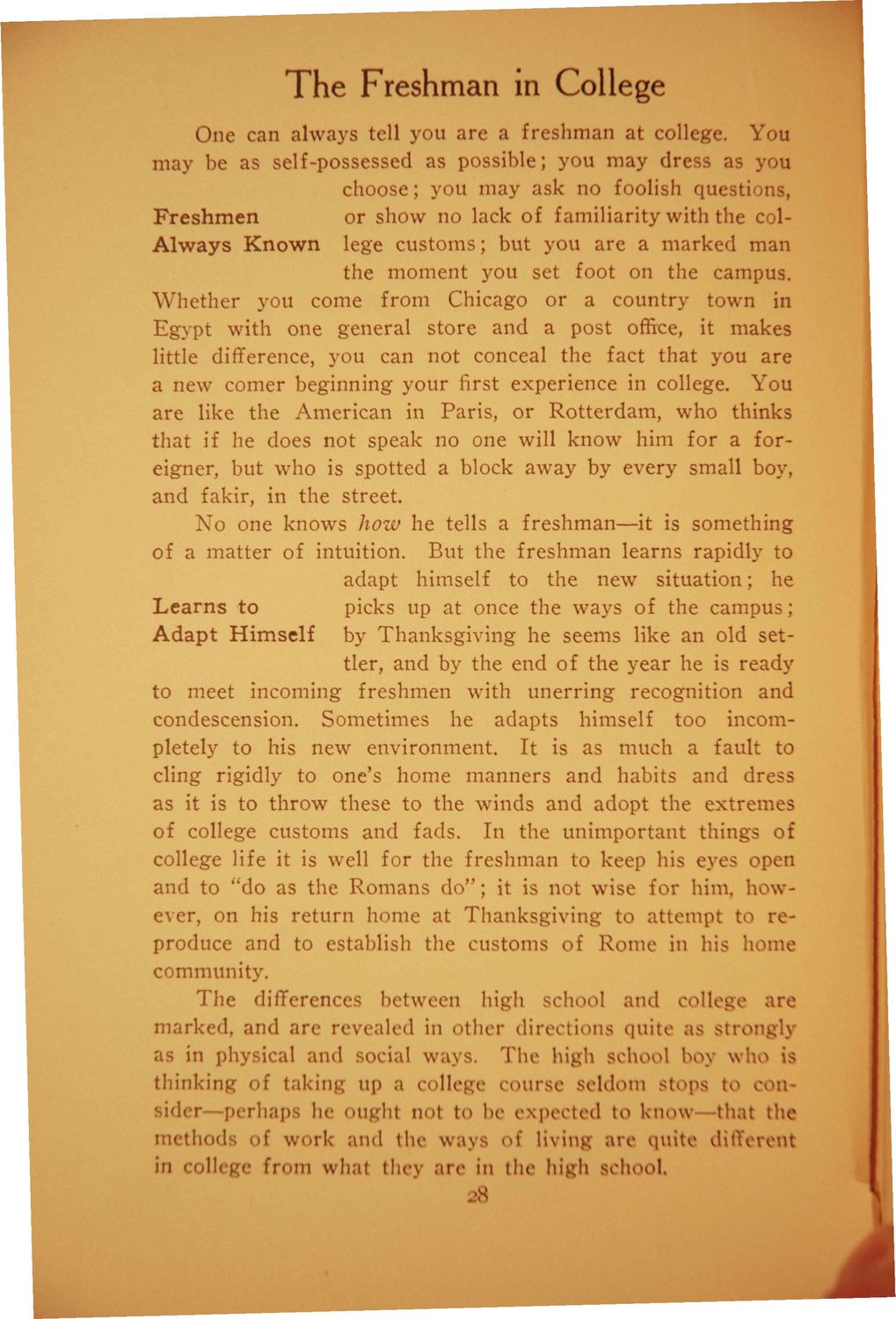| |
| |
Caption: Booklets - Facts for Freshmen (1914)
This is a reduced-resolution page image for fast online browsing.

EXTRACTED TEXT FROM PAGE:
The Freshman in College One can always tell you arc a freshman at college. You may be as self-possessed as possible; you may dress as you choose; you may ask no foolish questions, Freshmen or show no lack of familiarity with the colAlways Known lege customs; but you are a marked man the moment you set foot on the campus. Whether you come from Chicago or a country town in Egypt with one general store and a post office, it makes little difference, you can not conceal the fact that you are a new comer beginning your first experience in college. You are like the American in Paris, or Rotterdam, who thinks that if he does not speak no one will know him for a foreigner, but who is spotted a block away by every small boy, and fakir, in the street. No one knows liozv he tells a freshman—it is something of a matter of intuition. But the freshman learns rapidly to adapt himself to the new situation; he Learns to picks up at once the ways of the campus: Adapt Himself by Thanksgiving he seems like an old settler, and by the end of the year he is ready to meet incoming freshmen with unerring recognition and condescension. Sometimes he adapts himself too incompletely to his new environment. It is as much a fault to cling rigidly to one's home manners and habits and dress as it is to throw these to the winds and adopt the extremes of college customs and fads. In the unimportant things of college life it is well for the freshman to keep his eyes open and to "do as the Romans d o " ; it is not wise for him. however, on his return home at Thanksgiving to attempt to reproduce and to establish the customs of Rome in his home community. The differences between high school and college ar marked, and arc revealed in other directions quite as Strongly as in physi ll and social ways. The high school hoy who i thinking of taking up a college course seldom stops to consider—perhaps he ought not to be expected to know that the methods of work and the ways f living are quite different in collet' from what tin arc in the high school.
| |